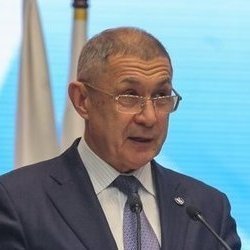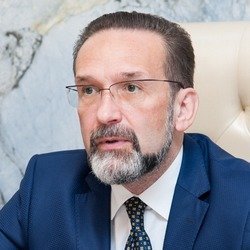Kazan 'matures' into the first league of intelligent transportation systems
Experts discussed the development of intelligent transport systems at one of the sites within the third day of the Kazan Digital Week forum. Twenty-seven urban agglomerations received funding for the implementation of ITS activities, but it is not enough. Experts suggest increasing the amount of federal support for the regions that are ahead of schedule. The Ministry of Transport will determine 5 levels of maturity of agglomerations in terms of ITS, and only 3 urban agglomerations correspond to the first level — Kazan is among them. Read the details in the material of Realnoe Vremya.
New rules for ITS
The first projects to create intelligent transportation systems (ITS) in Russia appeared in the mid-2000s. A year ago, according to Rosavtodor Group, there were no more than 15 of them, but the situation is changing. Within the framework of the national project Safe and High-quality Highways, it is planned to introduce ITS in 64 urban agglomerations with a population of more than 300,000 people. The deployment of these complexes will allow solving the most pressing transport problems by 2024, experts say. About 42 billion rubles are to be allocated from the federal budget for these purposes.
As part of the third day of the Kazan Digital Week forum, a meeting of the working group on the implementation of ITS on the road network of the subjects of Russia of Rosavtodor Federal Agency for Transport was held.

However, there are still many questions regarding their development. In 2020, according to the officially approved methodology, 27 urban agglomerations received funding for the implementation of ITS activities. However, during the implementation of the projects, it became clear that the funds were not enough to cover the costs of creating the systems indicated in the methodology. Experts fear that because of this, a not entirely predictable result is possible by 2024. Therefore, the Ministry of Transport of Russia has developed a concept for changing the event, which outlined an updated approach to the development, formation of the application and evaluation of its ranking. The department proposed to divide the methodology into two documents:
- methodology for developing applications at the first stage, through which all agglomerations participating in the project will have to pass;
- order of ranking evaluation, which will be immersed in the government decree: only those regions that have correctly formed the application will reach it.
Besides, the Ministry of Transport proposes to reduce the list of mandatory subsystems in urban agglomerations, while defining 5 levels of maturity. According to the updated criteria for it, only 3 urban agglomerations correspond to the first level of maturity. Kazan is also among them. It was proposed to use the classification of roads in urban agglomerations. By November, new regulations in the field of ITS are going to appear.
Competition protection and unreasonable complaints
The issue of technical documentation causes a lot of controversy. According to experts, sometimes 4 complaints are filed against one technical documentation. It seems to be safeguarding competition. But, on the other hand, complaints are sometimes unfounded and suspend trading. For this reason, the region cannot make a cash budget.
Sultan Zhankaziev, the president of the Association of Transport Engineers, head of the Organisation and Traffic Safety Department of the Moscow Automobile and Road State Technical University, in turn, highlighted the following problems:
- ITS is often reduced to ASUDD (automated traffic management systems), and this is a much broader concept.
- Lack of qualified personnel.

However, in many respects it comes down to financing. Many participants of the discussion see the lack of funds as the main problem in the implementation of the programme.
Different regions have different funding?
Igor Kostyuchenko, the deputy head of the Rosavtodor Federal Agency, noted that it is possible to increase the volume of federal support for some regions.

Rifkat Minnikhanov also spoke on the topic of financing:
“I would give additional money to regions that find some extra-budgetary funds for the development of these services. It will be even more interesting for them to work. If you use it well — you'll get it again. This is the principle one needs to be guided by.”
The speaker also raised the topic of ecology in the field of transport. “I think the exclusion of environmental indicator is wrong. Today it is even becoming one of the main ones. We have been going to foreign conferences since 2012, and the environment is always in the foreground. In 2021, we launched an adaptive traffic management system and an interchange in parallel. What gave a greater effect? Both of them. Environmental friendliness is one of the main indicators that will force us to switch to electric vehicles. Today we are pushing this topic in general: there is no infrastructure, nothing. When 25 such cars arrived at the forum, 3 from Innopolis, as well as from Ulyanovsk. Is it envisaged that charging stations will appear in the future?"